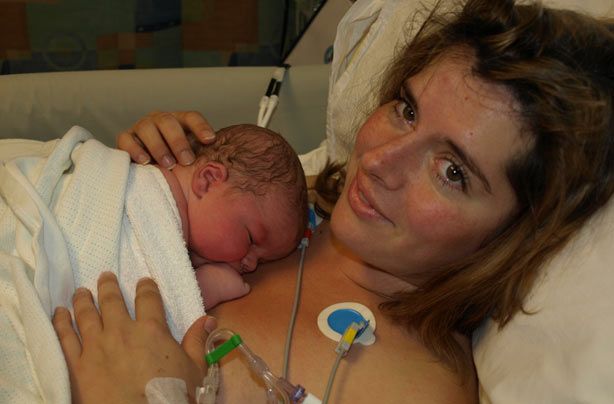Postnatal depression: the advice I'd give myself
Looking back on her own postnatal depression, Tricia Murray shares the words of wisdom she'd liked to have known then

Often the best people to give advice are the people who have been through a situation themselves and come out the other side.
Having suffered postnatal depression, Tricia Murray decided to set up her own company to help women both pre and postnatally. Here she tells her own story and shares her advice to women going through postnatal depression.
I was diagnosed with postnatal depression when my older twins were around two-and-a-half years old and my youngest son was 9 months old. It was a truly difficult time. I don't think I'd appreciated what a strain I was under looking after three young children - 22 months apart. For me, it took me a long time to realise I'd gone from having bad days, to bad weeks and then bad months.
I can't actually say when the PND started. On reflection I probably had some mild symptoms of PND when the twins were born which had gone dormant and then returned full force in the summer of 2011.
I was reflecting recently on all I'd been through, and was thinking, what advice I would give to myself now - recognising that PND comes in many forms and each person's situation and symptoms are unique. So here's what advice I would give to myself, 3 years ago:
*Speak to your health visitor and GP and be absolutely honest with them about all your symptoms and feelings - that includes feelings of harming yourself or your baby. They will diagnose you more appropriately and not take your baby away - these are normal symptoms of PND.
*Organise counselling. Counselling services from local PND charities is great but in demand. If you find there is a waiting time and you have the money or you have access to private medical insurance through your employment (or your partner's employment) find out if you can access counselling as part of it. You are worth it - don't feel it's an unnecessary expense, it's essential to your health.
GoodtoKnow Newsletter
Parenting advice, hot topics, best buys and family finance tips delivered straight to your inbox.
*Try to get out of the house every day, even if it's just for 10 minutes, or do easy things like go for a coffee, cinema, easy walk - you might be struggling with energy levels or being able to undertake the most basic of things - that's normal.
*Use apps such as 'Headspace' or 'Deep Sleep' and many others - they are free, or cheap, and can be very effective and take just a little time each day to use. They really help calm down any spiralling negativity and are proven to aid sleep.
*Keep yourself busy doing anything but thinking. Craft is a great way of taking up headspace (take up knitting, baking, scrapbooking), reading books (which has been found to have positive effects for days after finishing a book), activities such as listening to music with a good sing-a-long. Spend your time with POSITIVE energy filled people who make you feel good about yourself.
*Lower your expectations - this includes from your babies/children (around sleep, eating, behaviour - they are acting like babies and toddlers), yourself (do you really need to create masterchef meals, would beans on toast do? Do you need to set up messy play in your house?) and those around you (they, unfortunately, haven't learnt to read your mind).
*Be kind to yourself - do something every day for yourself. It could be a long soak in the bath, listening to the radio in peace, going for a massage, or spending time with people you want to see. Take a break every day, one that is conscious (ie not always a sleep) and try to organise a longer break from the children at least once a week.
*Practice gratefulness - that could be the sun on your face, the opportunity to get some 'me time', it could be your children, your husband, your home, your pets, your family, a new outfit, or just anything that you feel you can be grateful for.
*Make a jar of positive affirmations and when you are feeling low, read them out. Useful ones such as 'I have all I need to manage', 'I have been given what I can cope with', 'I am calm', 'I am respectful of myself and my feelings', 'I enjoy spending time with my children', 'I enjoy meal times with my children', 'My children are behaving like children', 'I am loved by my family'.
*Let go - of the control, of the negative thoughts, of the parental guilt, of the clock-watching and routines, of any expectations and start enjoying the chaos, life as a parent and cuddle your babies.
Since my recovery from PND I decided to set up my own postnatal care and consultancy service to support new parents, NurtureMe. For more information, email tricia@nurturemeedinburgh.com or telephone 07811 200 762.